Het is al weer een paar weken geleden dat ik een nieuw deeltje van dit lange interview met Bill Clifton op deze site zette. Het betekent niet dat ik het niet meer interessant vond, maar meer dat ik allerlei andere interessante dingen voorbij zag komen. Maar, hieronder is weer een nieuw deeltje te lezen. Harry & Jeanie West komen voorbij, en ook wordt aandacht aan het Newport Folk Festival (editie 1963) besteed…
Collecting Records
Transcriptie:
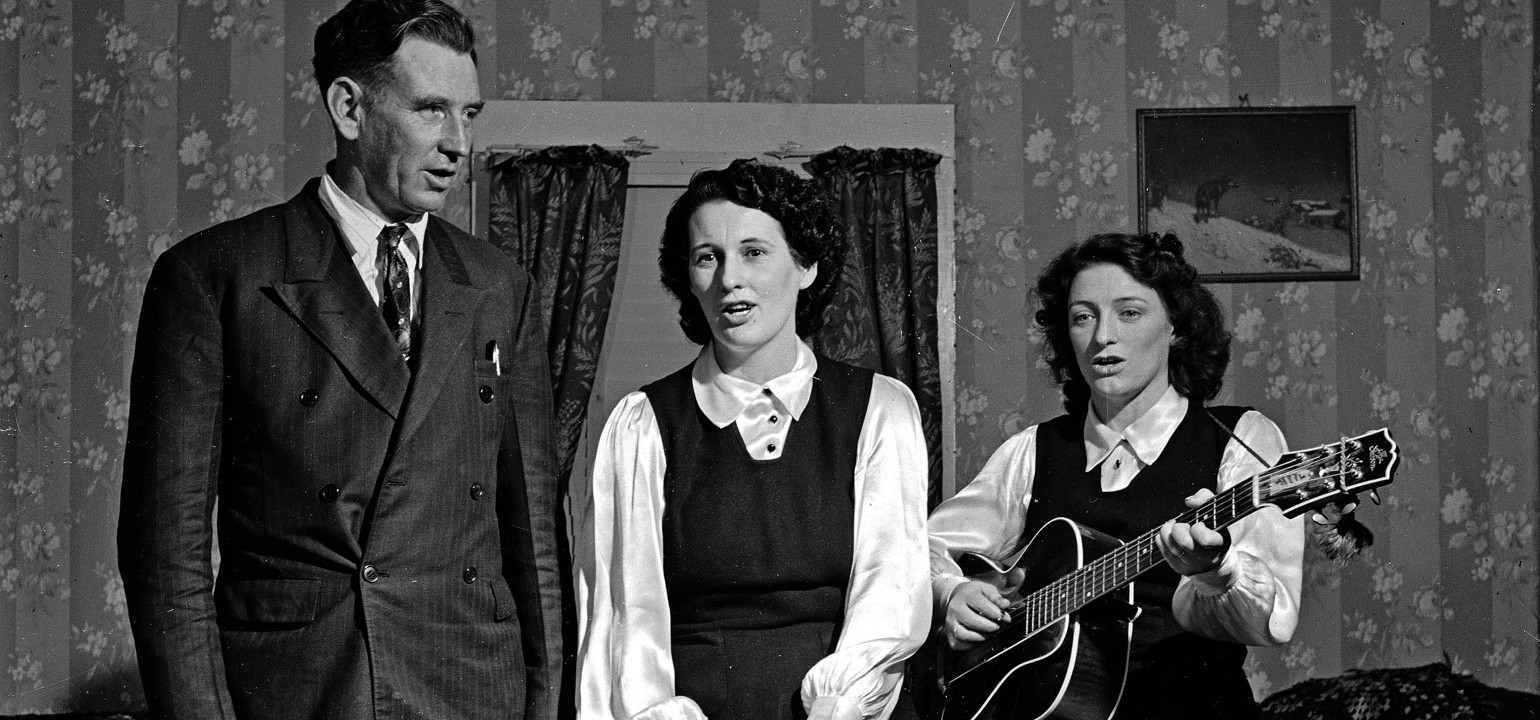
Did they find that when they recorded more songs that there was more time between the next session or… ? It depended on the time in history, really. I mean, when the stock market collapsed in 1929, in November… Well, we were talking of the frequency of the sessions when the stock market fell and we went into the depression. They didn’t sell a lot of records in 1930 and 1931, 2, 3 on right until the Second World War because we were in a deep depression and anybody who would have bought Carter Family records, or most of the people. Let’s put it that way, most of the people that would have bought Carter Family records or any of the country music or old-time music that was being put out by the record companies at that time, those people didn’t have the money. And they couldn’t afford to buy them. And the companies began to press fewer and fewer. And when they did have a session instead of pressing five or ten thousand they’d press one thousand.
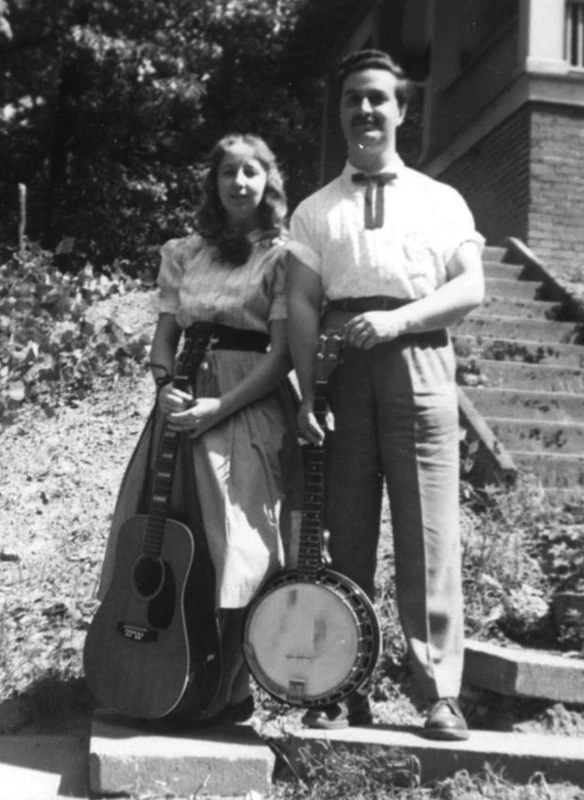
That makes these old records very rare of course? Very rare! In fact, I can’t remember what the pressings are on some of those 1930 and ’31 recordings but they, some of the ones that were like very rare, like ‘Bear Creek Blues’ was one of them that I remember, nobody had. It was a pressing of one thousand if I remember right. And how do you find those on a breakable vinyl record, not a vinyl but a breakable wax record, or whatever. They just weren’t there to buy and people just didn’t have them. The serious collectors who never play their records and also keep them in mint condition who had the money were working in New York City and working for maybe, I’m thinking of Harry West for example. Harry & Jeanie West who were living in New York City when I met them and Harry was working for the subway system, I think it was, at the time and he was making good money. But they were from western North Carolina and they had taste in music that ran that way.
I’ve got one of their albums. Have you? Well, first time I met Harry I met him through an attorney in New York City and I had found this attorney because they had leased from Columbia two tracks; ‘Beautiful Isle over the Sea’ and ‘Homestead on the Farm’, which I didn’t have. And they had leased it and put it out on their label called ‘Perfect’. And so I found this lawyer so I could get a copy of this record. I was in New York City and I needed a copy of this record. I couldn’t stand it that I didn’t have it. And I knew about it but there was no place to buy it except from them. And he said, well, he had a partner. He said: ‘Do you know Harry West?’ And I said: ‘No, I don’t know him’. And he said: ‘well, he’s my partner and he lives up in Queens’, or the Bronx, I can’t remember which one it was. ‘And you should go see him’. Well, I did and Harry & Jeanie had all these wonderful mint instruments and they had all these perfect records. And by that I mean they were mint condition recordings by The Carters, amongst others, and at some point I mentioned a particular song and he went to his stacks of, well ‘racks’ I should say. They were all very well preserved in green-card sleeves and where he could find them right away. And he went and found this record and he brought it out and showed it to me. And it was in perfect, mint condition. And I said: ‘Gosh, I have never heard that’. And he said: ‘Yeah, it’s a wonderful song’ and he put it back in the sleeve and put it back on the shelf. And that’s why he had mint records…

We translated a series of interviews with people like David Freeman and the guy from the Country Music Hall Of Fame (Bob Pinson), who had the… I know whom you mean and I can’t think of his name now, but I know exactly who you mean. He’s not there anymore.
No, no, no. They fired him five years ago, something like that? I don’t know whether it’s that long ago but I know that Dave Freeman was very upset about it. I didn’t know the man and I never have met him but Dave said he was the one person that knew what was going on in the music, you know.
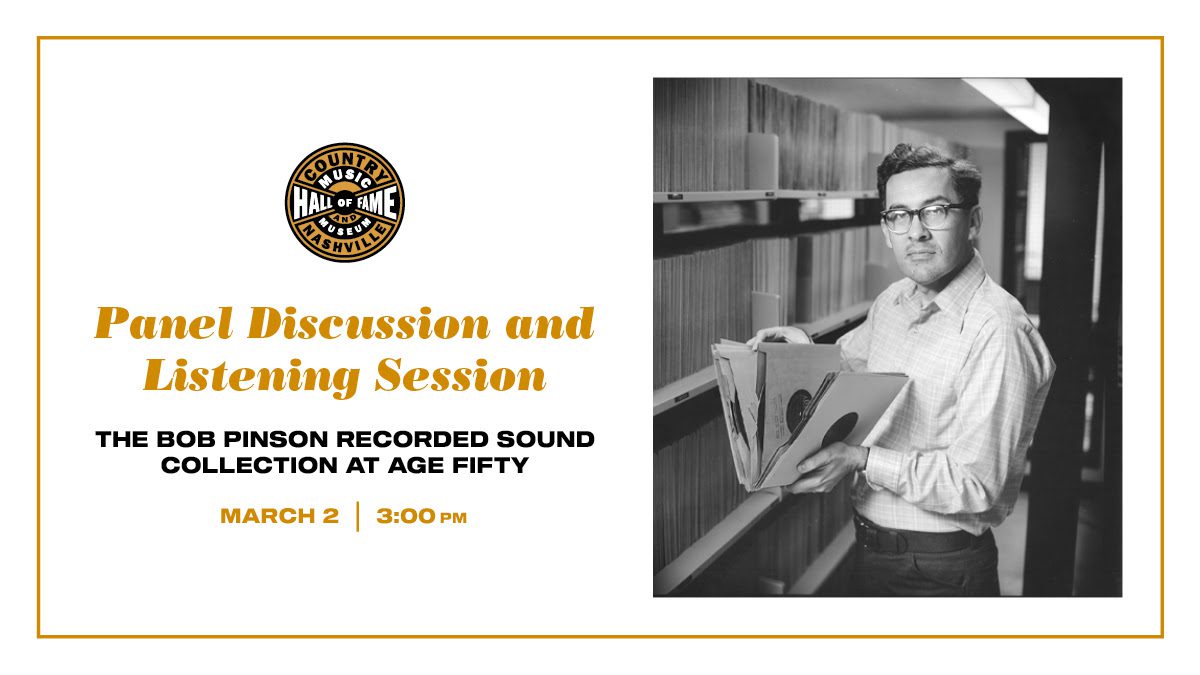
The larger part of their collection used to be his private collection, he sold it to them. Oh, I didn’t realize that.
That’s what I … when we translated those interviews that’s one of the things he told the interviewer. I was only there one time and they had some songbooks that I wanted to look at. They may have come from his collection too.
But in those years, like early forties, there was nobody collecting records, was there? No, not really, they were too new.
People were buying records from artists they liked to a certain extent but not seriously collecting? No, there was nobody collecting at that time. I mean, there were people, I think I did mention to you in the last part of the interview, did I talk about Dorsey Dixon?

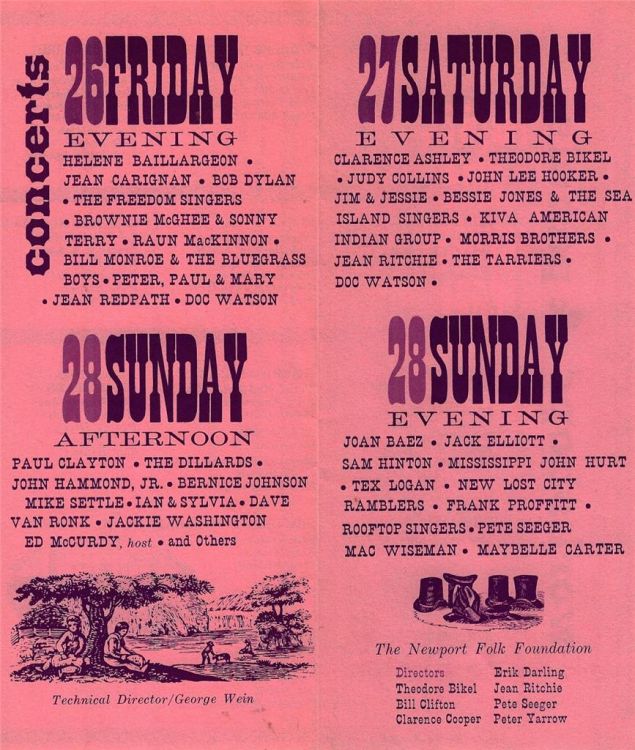
You did mention his name but not really talk about him. Well, I didn’t meet Dorsey until 1963. I got him to the Newport Folk Festival. He and I corresponded quite a bit.
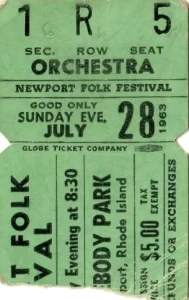
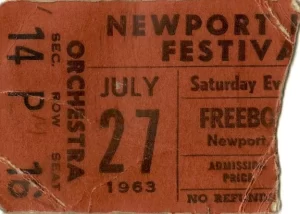 He’s got one album on Testament, I believe: ‘Babies in the Mill’. And he’d written so many songs that I didn’t know he’d written. Most of the ‘mill-songs’ that you’ve ever heard were written by Dorsey Dixon. I mean, he just wrote one after the other. Because he worked in the mills for years. And I didn’t know he’d written them and he didn’t have copyrights on any of them. He and Howard, his brother had recorded a lot of them. When he came to Newport we talked about it and I had him on a workshop. And I said: ‘You know Dorsey, I think when I look back at your recordings and in the early thirties you and Howard, up to the middle thirties they were recording, why you stopped recording?’ And he said: ‘Well, nowadays it kind of sounds a little bit foolish, I guess’, but he said: ‘Howard and I talked about it and we thought ‘Well, it’s just a fad. Records aren’t gonna last’. And it’s hard to imagine that somebody would think that way now, you know, in retrospect, but back then they were new…
He’s got one album on Testament, I believe: ‘Babies in the Mill’. And he’d written so many songs that I didn’t know he’d written. Most of the ‘mill-songs’ that you’ve ever heard were written by Dorsey Dixon. I mean, he just wrote one after the other. Because he worked in the mills for years. And I didn’t know he’d written them and he didn’t have copyrights on any of them. He and Howard, his brother had recorded a lot of them. When he came to Newport we talked about it and I had him on a workshop. And I said: ‘You know Dorsey, I think when I look back at your recordings and in the early thirties you and Howard, up to the middle thirties they were recording, why you stopped recording?’ And he said: ‘Well, nowadays it kind of sounds a little bit foolish, I guess’, but he said: ‘Howard and I talked about it and we thought ‘Well, it’s just a fad. Records aren’t gonna last’. And it’s hard to imagine that somebody would think that way now, you know, in retrospect, but back then they were new…

Facebook reacties